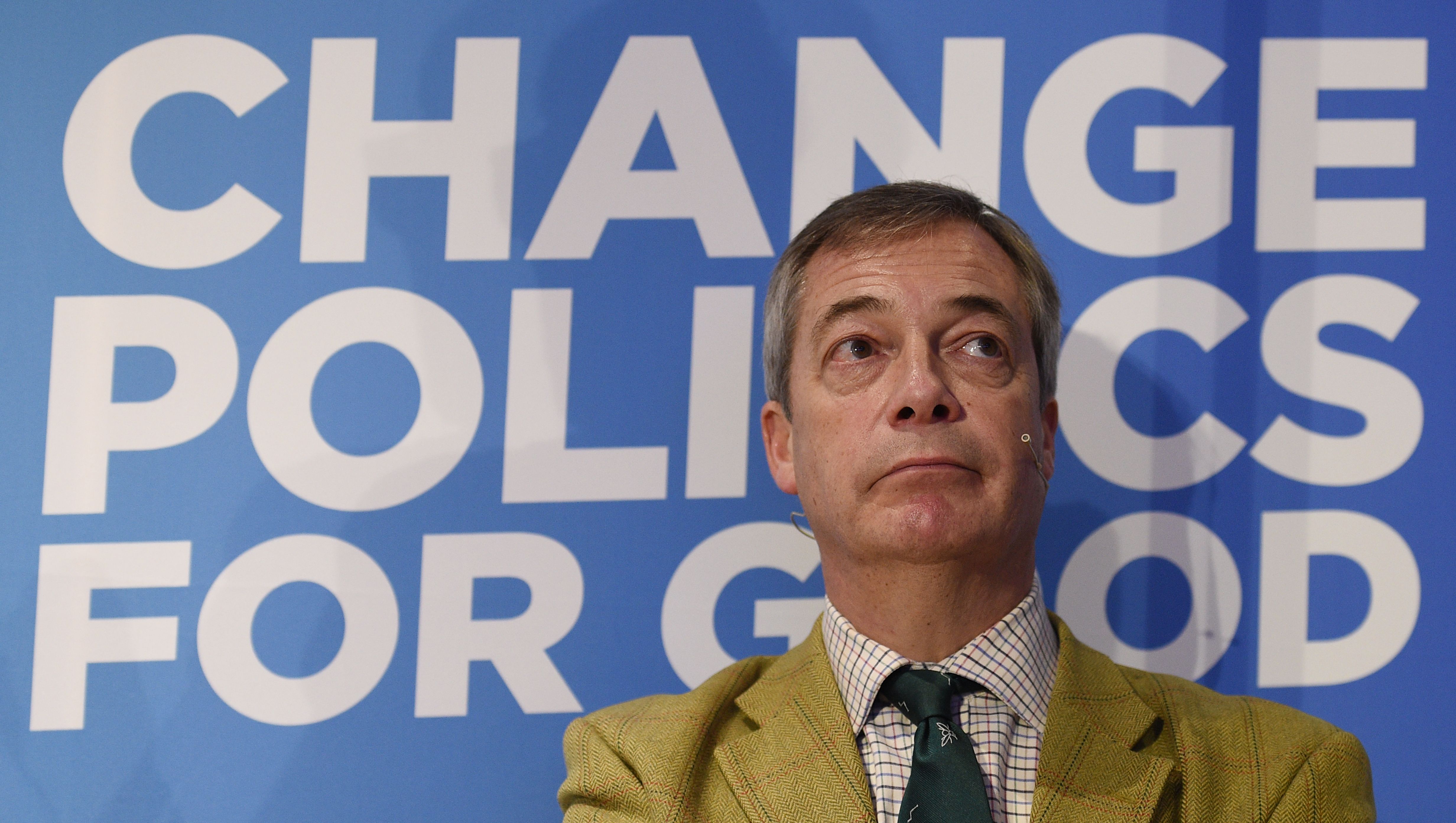Right-wing protest politics has just catastrophically over-reached in America, but it is suddenly back in business in Britain. Its dominant figure, Nigel Farage, has a new political start-up and is sounding rather pleased about it. Earlier this week the Electoral Commission finally — after more than eight weeks of humming and hawing — gave him permission to rebrand the mothballed Brexit party as Reform UK.
‘It is excellent news that the Electoral Commission has approved our name change application. The need for Reform in this country is greater than ever,’ tweeted the new Reform UK leader (an unelected post, naturally).
Given that the Brexit party has not only been in cold storage since the UK formally left the EU at the end of January last year, but became an entirely obsolete brand when the Prime Minister last month secured a trade deal that respects the core of Brexit, the new identity can only be a positive thing for Farage.
It can surely only be a positive thing for another senior politician too — Labour leader Sir Keir Starmer.
It is certainly not a perfect moment for Farage — by no means is every star in alignment
Even while it was engaging in no campaigning activity at all, the Brexit party was still notching up opinion poll ratings of 3 or 4 per cent. As Reform UK it can become a potentially appealing destination for right-wing protest votes just as a Tory government besieged by the coronavirus and with a giant hole blown in the economy is on the cusp of entering the always-tricky mid-term phase.
Starmer can now hope to take a solid poll lead over Boris Johnson’s Conservatives without even needing to push his own party into the hitherto elusive plus 40 per cent bracket.
If Farage and his chief lieutenant Richard Tice go about their work with their usual gusto, there is every prospect of Reform UK debuting in opinion polls at 8 to 10 per cent. And given their agenda and political roots, it doesn’t take a genius to work out that such an uplift would come largely at the expense of the Tories.
It is certainly not a perfect moment for Farage — by no means is every star in alignment. The downsides of his close relationship with Donald Trump are suddenly magnified; the surging new strain of Covid and the advent of vaccines have reduced the depth and the breadth of anti-lockdown sentiment; and even he has acknowledged that the essentials of Brexit really have just got done.
On top of that, a video clip he recorded this week suggesting that Tony Blair be put in charge of Britain’s Covid vaccination programme landed very badly with many of his natural supporters. But there is still plenty for him to go at, with the new party stressing its commitment to reforming the House of Lords, the BBC, the Civil Service, the electoral system, taxation and regulation, as well as continuing to criticise the govenrment’s response on Covid.
The reality on immigration — as opposed to ministers such as Priti Patel talking a good game — will also be in his party’s sights, with Tice telling me in a pre-Christmas interview that the government has pitched the earnings threshold for economic migrants far too low. While Farage put out a new year message that implied grudging acceptance of the current lockdown, Tice seems to have the bit between his teeth in still opposing it, lashing out against the latest round of restrictions.
Such stridency may only currently be appealing to around 15 per cent of voters, but when you are just getting going that is a niche worth having. How Farage manages his relationship with his increasingly ambitious deputy will surely be key to the new party’s fortunes. As a more conventional figure with a long track record in business, Tice has the potential to bring new supporters into the fold.
The duo shares a Thatcherite and Reaganite economic view — believing in the potential of dynamic tax cuts, sharpening incentives and light-touch regulation — that is liable to be appealing to the small business vote and contrasts with Johnson’s more social democratic instincts. Despite Tice’s ferocious public opposition to any postponement of May’s scheduled giant round of local and devolved assembly elections, a short delay would actually benefit Reform UK, giving it more time to select credible candidates in Scotland, Wales and London where he will likely run for mayor.
If the anti-Boris, left-of-centre media follows its head rather than its heart by giving Reform UK plenty of coverage then the story of the next few months could well be of a slipping Tory poll rating and the by-no-means unbreakable esprit de corps of Tory MPs coming under increasing strain.
Recent political history indicates that an incumbent Tory PM is usually able to squish the Farage threat when a general election looms, if — and only if — he or she is prepared to adopt large parts of the Farage agenda. But from Nigel’s vantage point that will look very much like: ‘Heads I win, tails you lose.’








Comments